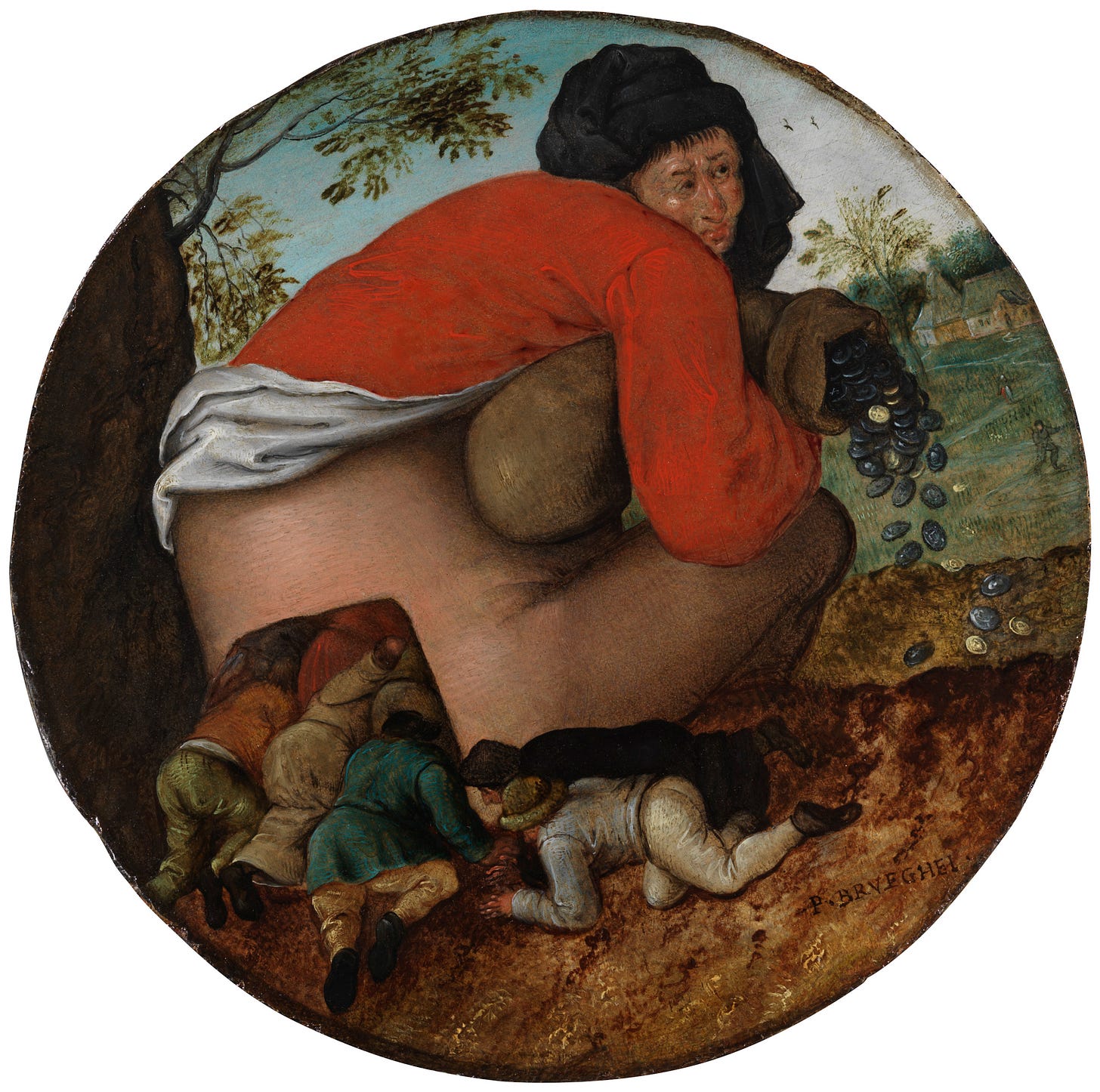Look at you, reading on Substack. How clever!
You read so well, too. I bet you’re mouthing this with all the right inflections. Oh, to scroll a mile with your thumbs!
Obviously, I’m saying all this because I want something: I want you to like and subscribe. Comment, too. Really tickle the algorithm. (I won’t ask you to share — you’ll only do that if you’re gorgeous.)
In their essay on the nature of flattery, philosophers David Heyd and Yuval Eylon note that flatterers come in two sorts. Manipulative flatterers want something from you. Feeling around for your vanities, they butter you up with compliments in an effort to get what they want. (Of course, I could never do that to you — you’re much too discerning and canny!)
Obsequious flatterers, by contrast, are being semi-sincere. There is some sort of inequality — a perceived one, anyway — between the flatterer and yourself, about which the flatterer feels inferior. In an effort to paper over the perceived inequality, the obsequious flatterer seeks your approval, and tries to get that approval through grovelling.
Often, though not always, flattery feeds on the vice of the flatteree (some combination of excessive vanity and deficient self-esteem):
The reason The Office’s Michael Scott is so easily won over by flattery is that he thinks both too little and too highly of himself. He is desperately insecure and yet bewilderingly, steadfastly confident in his abilities as a boss, lover, magician, comedian, cinematographer, public speaker, job candidate, and haver of many friends. Flatterers exploit his delusions of grandeur (“Hot tie guy!”), whenever they need something from him.
But crushing your insecurity and vanity won’t guard you from manipulative flattery completely. To guard yourself from manipulative flattery completely, you’d have to either (a) become the type of person who is unable to take complements, or (b) refuse to show any partiality to the people you personally like.
The first option, becoming the type of person who is unable to take compliments, is a tragic one. I’m like this to some extent, and I regard it as a major defect. If you become like this completely — if you reflexively wall yourself off from kind words out of a suspicious fear of manipulative flattery — you’ll have a hard time being friends with anyone. People don’t like having their compliments batted away, especially if giving them took courage on their part; wall yourself off from kindness, and the world will regard you as a massive plonker.
Keep reading with a 7-day free trial
Subscribe to Going Awol to keep reading this post and get 7 days of free access to the full post archives.




